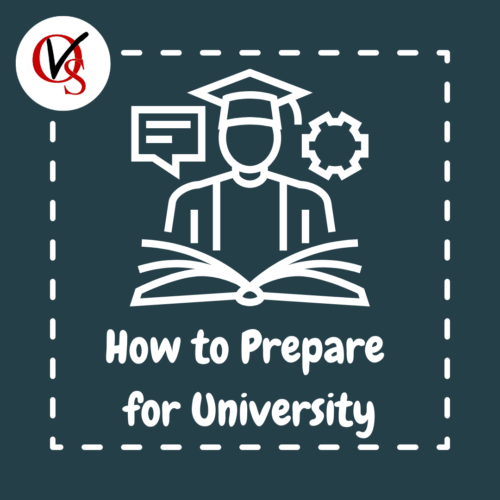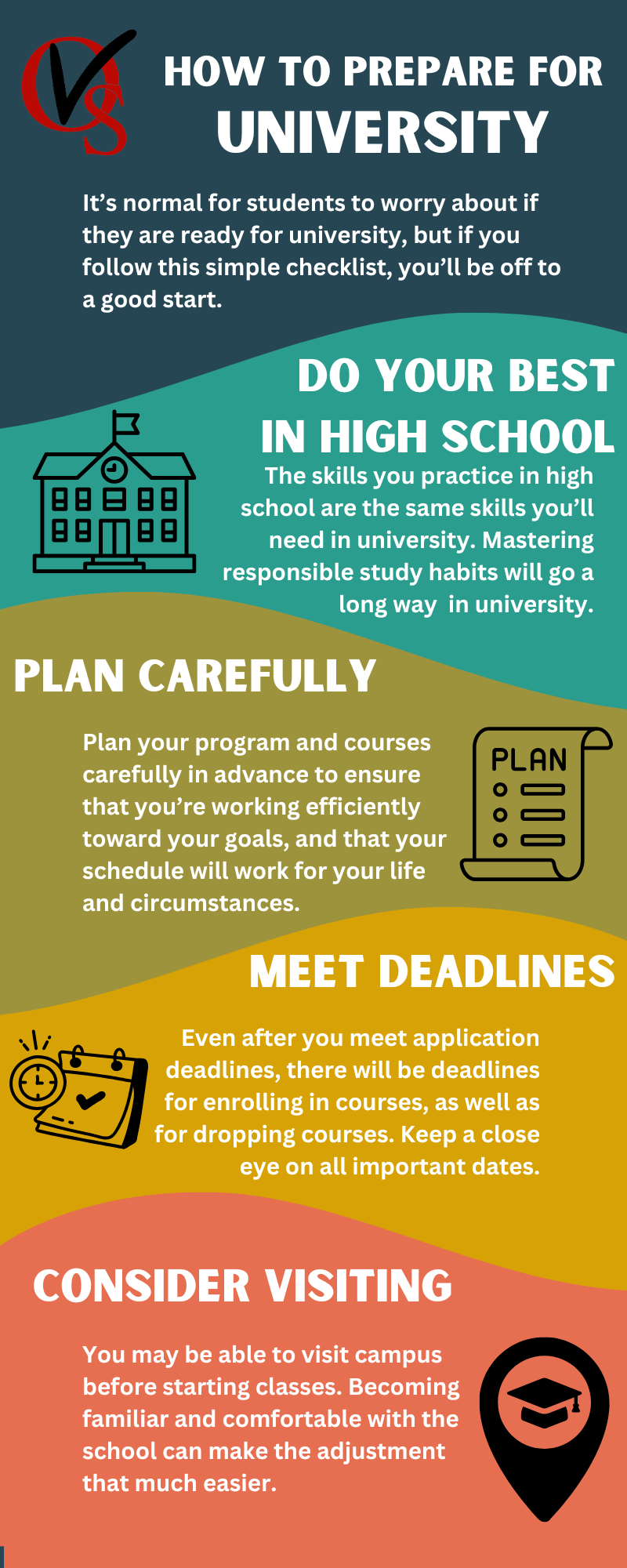
It happens every year. Students find themselves finally on track to complete high school, maybe they’ve even already gained acceptance to a university, but then they find themselves worrying about how to be prepared for university. How does one actually prepare for attending a university? How do I know if I’m ready?
It’s perfectly normal to not feel ready for university, but that doesn’t mean you have to stress yourself out over it! To help you prepare for university, Ontario Virtual School has created an easy to follow checklist.

Ensure You Meet All Relevant Deadlines
While still busy with high school work, it can be easy to lose track of various deadlines for university applications, but meeting all these deadlines is essential. It is possible to have excellent grades but miss important opportunities simply due to missed deadlines.
Even after graduation, when you’re busy enjoying your summer vacation, there might be further dates you have to think about, such as when your course selection opens. Once you start university, you may be able to drop courses early on without it impacting your overall marks, but deadlines for dropping courses are very strict.
Plan Your Program of Study Carefully
Often students get so caught up in worrying about what school they’ll go to that they pay less attention to what specific program they want to enter. Different programs may seem similar but lead to different degrees. Do you want to study psychology or psychiatry? The difference is important. Maybe you are interested in all STEM fields, but now it’s time for you to make a choice and focus on one.
Do you want to pursue an Honours degree, or some sort of specialization? Are you interested in postgraduate education or career opportunities that might require a specific degree? You can save yourself a lot of trouble later by thinking about this while still in high school.
Choose Your Courses Carefully
Once you’re accepted to a program, you still need to choose your courses. Depending on your program, you may have a great deal of freedom in your course selection, but you must ensure that the courses you pick are moving you toward your degree goals. If you’re not careful, it’s possible to take courses that you don’t need to graduate, and that might leave you with less time for the courses you do need.
You should also consider your schedule when picking courses. While it depends on your specific situation, course outlines will often list an approximate amount of time you will be expected to spend working on the course, including time spent on homework.
Some schools might let you know what day and time a course will take place, which may allow you to create a schedule that works best for your life. But making these intricate plans, and getting all the courses you want and need, requires careful planning. Getting an early start can really help.
Ensure You Meet All Relevant Deadlines
While still busy with high school work, it can be easy to lose track of various deadlines for university applications, but meeting all these deadlines is essential. It is possible to have excellent grades but miss important opportunities simply due to missed deadlines.
Even after graduation, when you’re busy enjoying your summer vacation, there might be further dates you have to think about, such as when your course selection opens. Once you start university, you may be able to drop courses early on without it impacting your overall marks, but deadlines for dropping courses are very strict.
Consider Visiting the University Before Your Classes Begin
Some students may even find themselves able to visit the university before classes begin. You usually don’t need permission to access university grounds, and in fact many have days scheduled for showing new students around. But even without these tours, you can simply show up and start finding your way around campus.
Learn the landmarks, find where your classes will be, and perhaps most importantly, make yourself comfortable. It can go a long way toward lessening that anxiety, and helping you get a good start once you begin your first year.
Here at OVS, we help students prepare for university every day. If you’re worried about how to mentally prepare for university, or any other part of the university transition process, visit our OUAC Info & Updates page, where you can even schedule a free one-on-one online appointment with our guidance department. These specialists can help you ensure you meet all OSSD requirements, including any secondary school courses you may need to enter your desired program. They can answer any questions you may have about the post-secondary transition process, and help you make your educational journey as smooth as possible.
